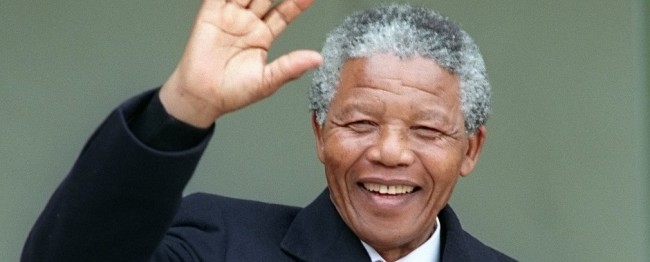Graham Noble
Guardian Express
July 4, 2013.

After weeks of speculation, South African court documents revealed that Nelson Mandela is, by all intents and purposes, dead. What followed his death is a tale of dishonesty and denial – staining the South African Government and its public institutions.
The documents, part of a legal filing in a Mandela family dispute, reveal that doctors told the family of the former President that “He is in a permanent vegetative state and is assisted in breathing by a life support machine…The Mandela family has been advised by the medical practitioners that his life support machine should be switched off.”
The court documents containing this revelation are dated June 26th; one day before The Guardian Express reported that Madiba – the tribal name by Nelson Mandela, Death, Dishonesty and Denialwhich Mandela is often known – had passed away.
Mandela’s health had been declining for some time and on June 8th, he was rushed to the Medi-clinic Heart Hospital in Pretoria to be treated for a recurring lung infection. As the days passed, South Africans gathered in vigil outside the hospital and the South African government urged people to pray for the former President, who is considered a hero in South Africa for leading the nation out of Apartheid and becoming the county’s first black national leader.
Updates on Mandela’s health have fluctuated between ominous and optimistic in the days and weeks that followed. The whole nation was mired in dishonesty and denial over Mandela’s death. On June 23rd, South African government officials announced that his condition had deteriorated and CNN reported that he was now no longer able to breathe unassisted and had been placed on life support. On June 25th, the day that – according to The Guardian Express – Mandela died, his closest family members had gathered for a meeting in his childhood home of Qunu, in South Africa’s Eastern Cape Province. That evening, the family was joined at Mandela’s bedside by Cape Town Archbishop Thabo Makgoba. Nelson Mandela was Christian, although there seems some dispute as to which branch of the faith he belonged. A family gathering at his bedside, with an Archbishop in attendance, on the very evening that – according to The Guardian Express – he passed away, seems more than coincidental.
Days later, South African President Jacob Zuma – along with other government and ANC officials – were describing Mandela’s condition as improving. Zuma repeatedly told the People of South Africa that the nation’s beloved icon was “critical but stable”.
Nelson Mandela, Death, Dishonesty and DenialWe now know that Zuma and the ANC were lying. The Guardian Express timeline of events can be found here. Even if Mandela had been still alive, there is no possibility that his condition was improving. According to the McGraw-Hill Concise Dictionary of Modern Medicine, a “permanent vegetative state” – more commonly called “persistent vegetative state” (PVS) – is a condition characterized by “no behavioral evidence of awareness of self or surroundings in a learned manner, other than reflex activity of muscles and nerves for low level conditioned response,” and “from which to a reasonable degree of medical probability, there can be no recovery.”
Cheryl Arenella MD, MPH, in an article entitled Coma and Persistent Vegetative State: An Exploration of Terms, writes “A person in a vegetative state can no longer “think,” reason, relate meaningfully with his/her environment, recognize the presence of loved ones, or “feel” emotions or discomfort. The higher levels of the brain are no longer functional.”
Later reports from South Africa revealed ongoing construction of new roads in Qunu; presumably, to accommodate mourners. In addition – even whilst official accounts insisted that the former President and leader of the African National Congress (ANC) was still clinging to life – reports emerged of a legal tussle between Mandela family members, regarding the site of his eventual resting place. Most assumed that Mandela would be buried in Qunu, where he grew up and had his retirement home. Grandson Mandla Mandela, however, had planned to ensure that his grandfather was laid to rest in the nearby village of Mvezo, where he, Mandla, holds the position of chief. Mandla had already had the bodies of three of Mandela’s children exhumed from their graves in Qunu and reburied in Mvezo. Other family members are currently attempting to have the courts compel Mandla to return the bodies to Qunu. It is this legal battle that led to the revelation over Mandela’s condition. What’s more, one might ask, why would Mandla execute such an action if he believed his grandfather would recover? Did Mandela’s grandson know he would never have to answer to Madiba? How did he know?
